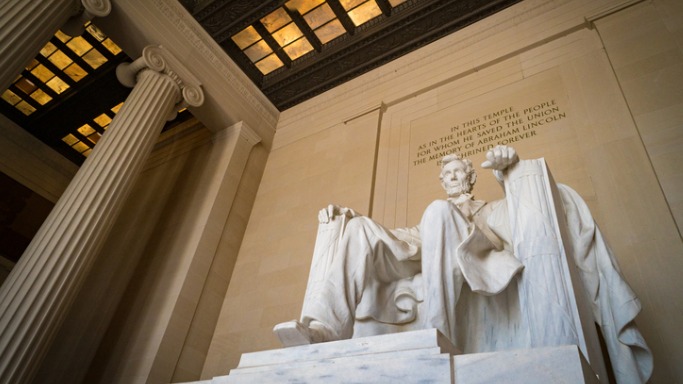Today, the country celebrates the birth of the Great Emancipator, President Abraham Lincoln, amidst ongoing efforts to cancel him. Such efforts, which began with the defacement of Lincoln statutes and petitions for their removal, have intensified recently with the San Francisco School Board’s vote to remove Lincoln’s name from a local high school.
Make no mistake, the Wokerati’s efforts to cancel Lincoln are motivated, not by a concern for justice as Americans traditionally understand the term, but by a desire to remove obstacles that prevent the establishment of a new national narrative.
This narrative—espoused by the Critical Race Theorists who now dominate many of our universities, media and entertainment establishments, corporate boardrooms, and government bureaucracies—posits that white racism is not an aberration from or a violation of American ideals and institutions but is the inherent byproduct of them. White supremacy, according to this view, is systemic in every aspect of American life. Thus, the American regime and its ideals—including staples of American political life long held dear such as the rule of law, due process of law, and equal protection of law—must be deconstructed and fundamentally transformed according to the new aims of social justice.
The narrative of Critical Race Theorists is well-captured in the historically inaccurate New York Times 1619 Project now making its way into school curricula across the country. The 1619 Project aims, in the words of its director and creator Nikole Hannah-Jones, to “reframe the country’s history,” by tracing the founding of America to 1619 (the year the British first brought African slaves to Virginia), rather than to 1776 (the year the Continental Congress adopted the Declaration of Independence announcing the birth of the American people). As co-founder of New Discourses, James Lindsay points out, the project promotes the aims of Critical Race Theory by effectively “turn[ing] the story of America on its head, positioning it not as having been born in the pursuit of freedom and liberty in 1776 but in slavery and evil in 1619.”
Lincoln, a statesman who deserves a great deal of credit for the eventual abolition of slavery, poses a direct threat to this narrative, in large part because he publicly recognized that—despite its flaws—America was “conceived in liberty and dedicated to the proposition that all men are created equal.” This foundational principle, Lincoln maintained, “ought to be constantly looked to, constantly labored for, and even though never perfectly attained, constantly approximated, and thereby constantly spreading and deepening its influence and augmenting the happiness and value of life to all people, of all colors, everywhere.”
Instead of seeking to correct unjust violations of American ideals, those fighting to cancel Lincoln aim at a society and vision of human flourishing that is fundamentally at odds with the individual liberty and inherent human worth that he espoused. In our efforts to preserve our country and its beautiful ideals, we can start by defending not only Lincoln the man, but more importantly the propositions of human equality and liberty for which he stood.

